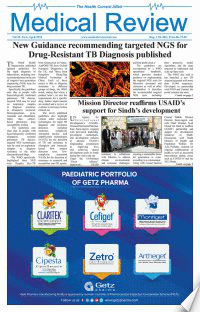Policy experts and policymakers have prepared detailed roadmaps to help Pakistan achieve its commitments under five Sustainable Development Goals (SDGs), at a special two-day session organised by the Federal Ministry of Health Services and Regulation in partnership with the World Health Organization (WHO), the Aga Khan University and the Pakistan Academy of Sciences.
The 17 SDGs span a set of 169 detailed targets across inter-linked policy areas that 193 nations, including Pakistan, have committed to achieve by the year 2030.
The two-day workshop saw over 80 specialists in health, nutrition, poverty, education, and water and sanitation assess evidence on the effectiveness of existing policy initiatives and share insights on where coordinated action could achieve the greatest impact.
Dr Zafar Mirza, convener of WHO’s Regional Office for the Eastern Mediterranean Taskforce on SDGs, said: “The SDGs bring together the economic, social and environmental spheres. Health is interlinked with each of the 16 other Goals – if health improves it brings benefits to all other 16 Goals. Similarly progress in the other 16 Goals also uplifts health.”
In her keynote speech, Minister of State for Information and Broadcasting Mariam Aurangzeb, who also serves as the convener of the parliamentary taskforce on SDGs, emphasised the interconnectedness of the different SDGs and how the Goals have been incorporated into the country’s National Health Vision 2016-2025 and its long-term planning framework, Vision 2025.
Mrs Aurangzeb urged stakeholders from all sectors present at the conference to work together to achieve targets under the SDGs. Speaking about how different arms of the government were working along these lines, she added that an SDG Secretariat was operational to coordinate parliamentary efforts to achieve targets.
The minister added that the government was also making efforts to train private media on how to report on the SDGs while public sector channels would broadcast programmes on how individual citizens can contribute to the achievement of the SDGs.
Speakers at the sessions pointed out that Pakistan’s indicators on maternal and child mortality, access to education, improved water supply and open defecation rates showed that there were a range of areas where research insights and public-private partnerships could enhance policy outcomes.
Expanding on this need for an integrated approach to achieve the interconnected SDGs, Dr Zulfiqar A Bhutta, founding director of the Centre of Excellence in Women and Child Health at AKU, added: “The SDGs are inter-related. One cannot achieve health-related SDGs without improving nutrition. You cannot achieve gains in adolescent health without looking at gender equality and you cannot tackle the challenge of diarrhea without access to clean water and sanitation.”
He added that public sector officials, academics and researchers with different areas of expertise need to come together to form a national steering committee to regularly review progress on achieving the SDGs. Regular analysis gaps in achieving targets and enable new initiatives to be planned so that Pakistan remains on track to achieve the SDGs by 2030.
In her presentation, Dr Zeba Sathar from the Population Council of Pakistan spoke of the social impact of demographic changes in Pakistan’s population. Because of Pakistan’s youth bulge, a rising proportion of the workforce will consist of adolescents, requiring more attention to be paid to the health and education needs of this younger generation who will be tomorrow’s adults. She noted that the continued expansion of the country’s population was having a negative impact on all SDG indicators particularly those tied to poverty reduction, nutrition, and health and education services in rural areas.
Other speakers at the event included Dr Assad Hafeez, Director-General of Health at the Federal Ministry of Health Services and Regulation, and Mushtaq Chappra, one of the founding members of the Citizens Foundation.


